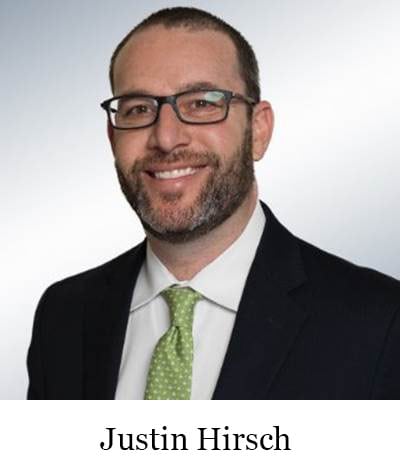Jobplex and Microsoft Extend Commitment to Hiring Veterans

March 6, 2017 – Jobplex, the Chicago-based partner company of DHR International, has renewed a contract with Microsoft to lead the placement of U.S. military veterans who graduate from the Microsoft Software and Systems Academy (MSSA).
The MSSA program prepares active duty U.S. service members with job skills to meet the IT industry’s high demand. Graduation from MSSA is planned so that it coincides with service members’ discharge dates, allowing them to begin a job immediately after completing the 18-week course.
More than 450 candidates have graduated from the MSSA program and either found employment in the tech industry or gone back to school for a tech degree. With this renewed contract, Jobplex is expecting the number of candidates who graduate from the program and be placed into jobs to double in size over the next year.
![]() ESR Recruiter Rankings Issue
ESR Recruiter Rankings Issue
Hunt Scanlon’s annual springtime ESR rankings issue is one of the most highly anticipated events in the field. To learn more about sponsoring our May newsletter and reaching 75,000 unique decision-makers connect with us today.
| Click Here |
Transitioning to Civilian Life
“Jobplex leads emerging leader level executive search, dovetailing with the VP / C-suite level where DHR typically operates,” said Justin Hirsch, Joblex’s president and HR executive search lead. “Our pay for performance / hybrid-retained model and capacity for project search has allowed us to partner with Microsoft in HR, sales, and IT related search with a focus on diversity talent pipelining as well as supporting the MSSA program.”
Jobplex is also leading efforts to involve other Chicago-based companies with the program and educating them on the benefits of employing MSSA graduates.
Partner Patrick Bulmer and Mr. Hirsch have been at the forefront of the partnership with Microsoft. They both recently sat down with Hunt Scanlon Media to discuss the alliance and the challenges and advantages in hiring veterans.
———————————————————————————
 Patrick, can you explain the Microsoft Software and Systems Academy?
Patrick, can you explain the Microsoft Software and Systems Academy?
Bulmer: MSSA is part of the company’s commitment to help service members gain the critical technology skills required for today’s high paying IT STEM careers prior to transitioning to civilian life. The 18-week program prepares active duty U.S. service members and veterans in high-demand IT areas such as, server and cloud administration, database administration and business intelligence, cloud application development, and cybersecurity administration. Graduates can also earn up to 18 college credit hours toward a degree program with learning partners Embry-Riddle Aeronautical University, Saint Martin’s University and test for a variety of Microsoft certifications.
 Justin, where does Jobplex come into play?
Justin, where does Jobplex come into play?
Hirsch: Students complete professional development exercises with Jobplex and other select resources. Upon completion, graduates are guaranteed an interview with Microsoft and have the opportunity to work with Jobplex to potentially interview with one of our over 170 hiring partners. While Microsoft endeavors to hire MSSA graduates, we also see this as an opportunity to help fill the hiring gap within the IT Industry. Jobplex is one of the companies leading outreach services and maintaining relationships on behalf of MSSA graduates and we recently renewed a second contract to continue to support MSSA in the summer.
How many candidates has Jobplex helped Microsoft recruit?
Bulmer: Over 450 veterans have completed MSSA. Ninety six percent who completed the course and utilized career and job search support services with companies such as Jobplex obtained employment within 60 days’ past program completion, or they opted to complete their college degree.
What are some challenges in recruiting veterans?
Hirsch: There are many challenges to recruiting veterans. Simply translating skill sets from a military role on a resume to civilian terminology is challenging. Some transitioning service members and veterans do not hold traditional four year degrees. While many companies are comfortable evaluating candidates based on technical ability and cultural fit alone, some are still unable to waive degree requirements. In addition, finding hiring managers who are willing to invest in military / veteran talent, especially if the recruiter is unable to translate military experience effectively, can be challenging.
“A job search environment where lack of responsiveness is prevalent can intimidate qualified candidates from persisting in their job search, often times leading to veterans underestimating their worth in a corporate role.”
Bulmer: A job search environment where lack of responsiveness is prevalent can intimidate qualified candidates from persisting in their job search, often times leading to veterans underestimating their worth in a corporate role. Hiring managers and recruiters also often think the structure and hierarchy associated with the military is too rigid for veterans to deal with the ambiguity in today’s matrixed enterprises, when in fact they are faced with challenging, ambiguous situations on a regular basis.
What are some advantages for companies to bring in veteran talent?
Hirsch: Service members and veterans are exactly the type of talent to evolve the face of IT beyond the traditional four-year degree. Most candidates have a military relocation package, and are able to relocate themselves for the right opportunity. In addition many have a Secret or Top Secret Clearance.
Bulmer: Veteran candidates also bring a level of maturity and well-developed soft skills to the table that set them apart, including ability to work well under pressure; ability to meet aggressive timelines; ability to communicate with the most junior to the most senior level executives; ability to deal with ambiguity; and maintaining a “failure is not an option” attitude.
What can companies do better to hire veterans?
Hirsch: They can focus on technical assessments relevant to the job the candidate is being interviewed for, in addition to focusing on cultural fit, and be willing to look past requirements like certifications and degrees. Companies can also create internal veteran resource groups, allowing veterans to build organic communities within the organization.
Bulmer: They can also proactively keep track of the veterans within their organizations to help create communities of support and connection. Companies can also work with current veterans in their organization to find out what made them successful, and other ways companies can assist in their success. Lastly, they can be willing to talk to and interview veteran candidates to learn about their experience first-hand and the skill sets they possess, and how their skills can transfer to civilian career opportunities.
For additional information on Jobplex or how to get involved with the MSSA program, send an email to Patrick Bulmer (pbulmer@jobplex.com) or Justin Hirsch (jhirsch@jobplex.com).
Contributed by Dale M. Zupsansky, Managing Editor, Hunt Scanlon Media











